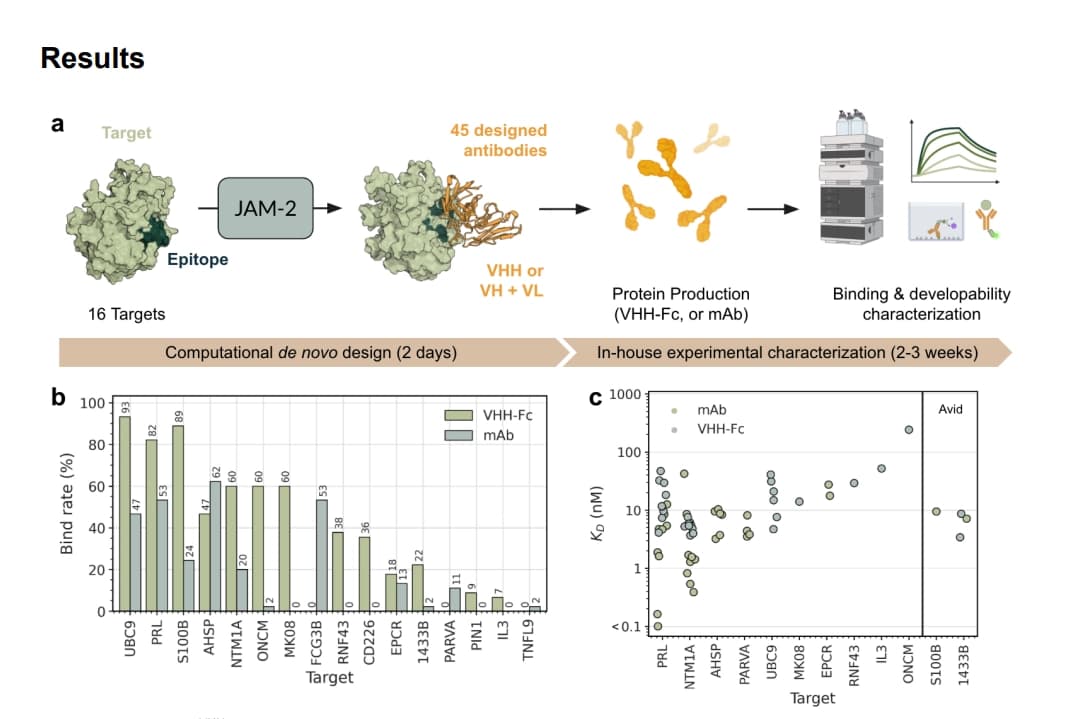Nabla Bio's JAM-2 System Demonstrates Superior Monovalent Antibody Binding Over CHAI-2

A recent analysis by Charlie Petty highlights that Nabla Bio's JAM-2 computational antibody design system exhibits "meaningfully better monovalent binding relative to CHAI," according to a tweet. This assessment follows announcements regarding "one shot drug-like antibody" advancements from both Nabla Bio and CHAI. The tweet suggests a significant performance difference in a critical aspect of therapeutic antibody development.
Nabla Bio's research paper, "JAM-2: Fully computational design of drug-like antibodies with high success rates," details their generative biomolecular design system. The study directly compares JAM-2's performance against "Chai-2," a system developed by Chai Discovery, focusing on the ability to generate high-affinity, developable antibodies. This comparison is central to understanding the tweet's assertion.
The Nabla Bio paper indicates that its JAM-2 system produced binders for 100% of 16 unseen targets, achieving average success rates of 39% for VHH-Fcs and 18% for full-length monoclonal antibodies (mAbs). Crucially, when comparing directly to Chai-2 on shared targets, JAM-2 generated VHH-Fc binders for four targets where Chai-2 reported none, and achieved higher success rates on two others. For full-length mAbs, JAM-2 produced binders for five targets compared to Chai-2's four, with three shared successes, underscoring its broader applicability.
Monovalent binding, a critical characteristic for therapeutic antibodies, refers to the ability of a single antibody binding site to attach to its target with high specificity and affinity. Strong monovalent binding is essential for precise drug action and to avoid avidity effects, where multiple weaker binding sites collectively create a strong bond, potentially leading to off-target interactions or reduced specificity. The tweet emphasizes Nabla's advantage in this specific aspect, which is vital for drug safety and efficacy.
Both companies are at the forefront of de novo antibody design, aiming to accelerate drug discovery by computationally generating antibodies with desired properties. The ability to design "one-shot drug-like antibodies" implies the creation of highly effective and stable therapeutic candidates that may require minimal further optimization. This advancement could significantly reduce the time and cost associated with traditional antibody development, potentially revolutionizing the biopharmaceutical industry.